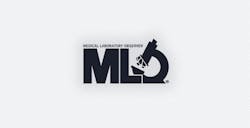“Our eyes have always
been on the ball of
'what is best for the customer.'”
Kirby Pilcher
President, Co-founder
Artel, Westbrook, ME
Kirby Pilcher co-founded Artel with Dr. Curtis in 1982.
His key focus is continued expansion of Artel's leading position in providing liquid-handling quality-assurance products and services to life-science laboratories.
Pilcher is concerned with building relationships with customers, developing new markets, and strategically guiding the company's operations toward continued growth.
He holds a BS in Engineering from New England College and an MBA from University of New Hampshire.
“Ensuring the integrity of data produced with pipettes and automated liquid-handling devices is essential.”
Richard Curtis, PhD
Chairman,
Director of Technology,
Co-founder
Artel, Westbrook, ME
Richard Curtis, PhD, manages research, development, and engineering activities, directing the advancement and application of Artel's core technology
as the company conceives new products and services and evolves current offerings. Dr. Curtis is responsible for completion of numerous development programs
and holds patents in photometric analytical systems, electronic circuitry, optics, and engineering physics. He earned a BA cum laude in Physics at Harvard and a PhD in
Nuclear Physics at Brown University.
Challenges labs face.
Pilcher:
Labs — ranging from forensics and public-health laboratories to clinical, drug-discovery, and research facilities — are having to cope with growing regulatory requirements,
while trying to increase productivity. Many companies also face the challenge of successfully practicing good laboratory science across multiple, interdependent locations worldwide.
While liquid handling is principal to many processes throughout the lab, we continue to see an increasing number of needed skill-sets and a scarcity of some of the essential ones,
such as automated liquid handler optimization and pipetting technique.
Curtis:
Laboratories are becoming overwhelmed with data, and some of that data are questionable, leading to the taking of even more data, driving a cycle of inefficiency.
Often, the core issue can be traced back to errors in liquid handling and delivery. Ensuring the integrity of data produced with pipettes and automated liquid-handling devices is essential.
Pipetting proficiency.
Pilcher:
While our company's key concerns revolve around the measurement of liquid handling, our eyes have always been on the ball of “what is best for the customer.”
We have developed expertise in how and why liquid-handling instrumentation performs the way it does, so we can help design a more efficient experiment or operational procedure —
one that is going to get to the needed result more quickly and with less waste.
Curtis:
We are able to provide some unique services that help laboratorians do their jobs better. Our liquid-handler verification service measures a liquid-handler's performance and provides data quickly, in order to
provide real-time information to the user, who can then redesign or modify processes. Another example is our pipetting-quality certification, which is an
objective teaching tool that can quickly measure the volume dispensed by a pipette to help lab technologists improve pipetting technique and gain confidence in their work.
QA/QC focus.
Curtis:
Quality control and quality assurance are now gaining strong economic legs in the lab, as well as being a requirement for compliance reasons. It is moving slowly, but surely,
into a model that W. Edwards Deming would approve of — part of his legacy being the idea of building quality into processes, rather than inspecting at the end. There is ongoing
demand for higher quality in all types of products — ranging from drugs and food to healthcare and beyond. At the same time, there is less tolerance for risk, even though we
continue to see a scarcity of skilled laboratory technicians.
Pilcher:
QA/QC is seen in a more strategic role, rather than an optional staff or service function. It is becoming more sophisticated in its analytical capabilities and procedures,
and is useful for finding the source of an issue — rather than merely solving the immediate problem at hand.
Spotlight on service.
Pilcher and Curtis:
We believe supporting charitable organizations is as important as providing excellent service and products to our customers.
The company recently sponsored Mary's Walk, a walk-a-thon to raise funds for the Maine Cancer Foundation. Artel employees also have
participated in the annual Wreaths Across America event at Arlington National Cemetery, donated their time and services to the local Animal Refuge League,
the Boy Scouts of America, Canines for Combat Veterans division of Dogs for Deaf and Disabled Americans, and other local charitable organizations.
We all share a commitment to the community where we are proud to work and live.





